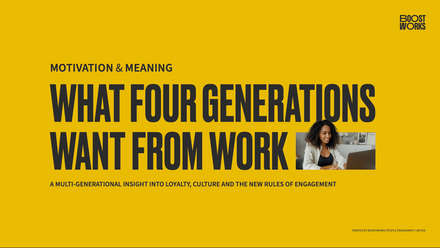Is it time to bring everyone back to the office?
Many of the employers with whom Bright Horizons partners have now increased their office-based working to encourage greater collaboration, mentoring and culture-building.
An article in the Sunday Times says: “Before Covid, fewer than 5% of UK employees worked from home; now more than a quarter do for at least part of the week, according to the Office for National Statistics.
However, the trend is reversing and Facilitate magazine draws on Irwin Mitchells’ Office Occupiers Survey 2025, to highlight that many employers let go of too much office space during the pandemic-driven shift in working: “64% of businesses admit they over-downsized owing to Covid-19.”
Now media stories cover the pressure for prime office space in the City of London, as employers compete to ‘earn the commute’ with the most attractive workplaces.
Childcare remains key
Of course, childcare is a key consideration, whether workplace nurseries or back-up care to keep day-to-day options flexible when care needs change.
Bright Horizons’ 2024 survey of client employees (Work+Family Snapshot) showed three-quarters (76%) of those with increased 'return to office’ said they had upped their childcare use as a result.
17 out of 20 (85%) parents using our clients’ early education settings said it helps them attend an office or place of work.
That Sunday Times article above covered the ‘perks’ (from gyms to golf) being deployed to ‘lure’ workers back to the office, claiming “nearly 40% of companies are now offering workers incentives to work in the office”.
Bringing people back to the office is a bigger change than many employers expected: employees changed their caring arrangements while working from home, making the return now a bigger transition.
Offering childcare at work, then, is not a ‘perk’ so much as a vital part of infrastructure enabling parents to keep their careers on track and continue participating in the labour market.
It is also attractive given the savings in tax and national insurance (NI) through salary sacrifice schemes.
Some employers are also keen to ensure their employees can find the childcare places they need given the issue of 'childcare deserts'.
When the fuller offering of 30 hours of funded care rolls out to eligible parents in September "an additional 70,000 extra places and 35,000 staff will be needed to cope with the influx of families wanting spaces and more hours".
One concern is that smaller, local nurseries are struggling to cope with increases in operating costs from April, including statutory wage increases, changes to NI contributions and rising utility bills.
Back-up care
Employers are therefore looking to the ways they can fill the gaps.
In People Management magazine, Kerri Haseman, Bright Horizons’ head of client relations shares tips on making the workplace engaging, inclusive and attractive for workers, including - naturally - the provision of back-up care.
Bright Horizons Work+Family Academy Manager Emma Willars and Jennifer Liston-Smith, Head of Thought Leadership hosted a webinar discussing what employees required for a sustainable return to the workplace.
For more news on caring and family benefits from Bright Horizons, click here.
Supplied by REBA Associate Member, Bright Horizons Work+Family Solutions
Bright Horizons is dedicated to providing the best in class work+family solutions.








